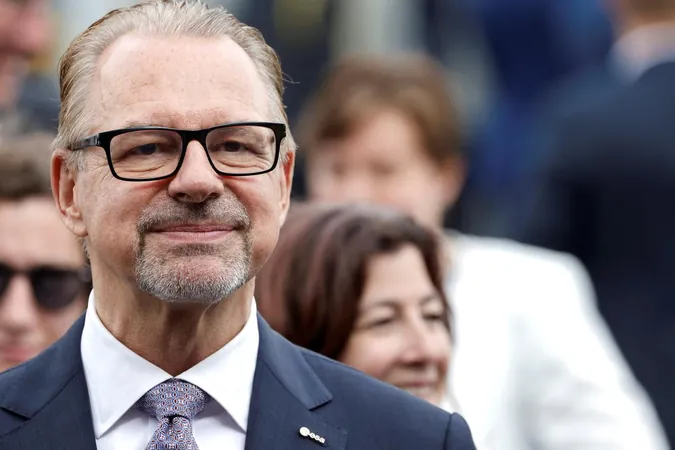
European Space Chief Assures Continued Cooperation Amid Italy's Independent Moves
2025-01-09
Author: Sarah
In a recent statement, the head of the European Space Agency (ESA), Josef Aschbacher, reassured that cooperation among European nations in space exploration remains steadfast, even as Italy positions itself to take more control over its rocket operations. This comes as Italy's space company, Avio, prepares to assume operations of the Vega C rocket, transitioning control away from Europe’s primary launch operator, Arianespace.
Adding to the wave of change, Italy is contemplating a potential partnership with Elon Musk's Starlink to enhance its satellite communications capabilities. Musk expressed his readiness, stating he is 'prepared to provide Italy the most secure and advanced connectivity.' This announcement raises eyebrows amid ongoing discussions about the future of European space policy.
Aschbacher emphasized the strategic importance of space, noting that investments in the sector are escalating. He highlighted the vital role of collaborative European programs, urging nations to prioritize these over individual national initiatives, especially in light of Italy's ambitious pursuits. Recent reports suggest the Italian government’s serious evaluation of agreements with Starlink aligns with Europe’s broader objectives, as the European Commission has just allocated funds for the IRIS² constellation aimed at providing secure communications for European entities.
In a climate of shifting dynamics, Italian Prime Minister Giorgia Meloni has reportedly cultivated a robust relationship with Elon Musk, noted for his alliances with significant political figures, including the forthcoming U.S. President Donald Trump. This evolving relationship introduces additional complexities as the European Union navigates its response to Musk's often controversial social media remarks, which have raised concerns among EU leaders.
At a recent press event, Aschbacher refrained from commenting on whether Musk's statements would impact ESA operations. However, it is evident that ESA is increasingly reliant on SpaceX to launch its payloads, particularly during a window when Europe faced challenges accessing space.
ESA, representing 22 member nations and established half a century ago to unify space efforts, is at a pivotal juncture in re-establishing independent access to space. The highly anticipated Ariane 6 rocket delayed its first launch last July, with plans for a subsequent launch in February 2025, expected to be the first commercial mission. With this launch timeline adjusted down from an initial target of six to five in total for that year, the ripple effects are palpable; notably, EUMETSAT recently announced its shift of a satellite launch to SpaceX’s Falcon 9 after reassessing schedules.
As ESA focuses on revitalizing its launch capabilities, it faces challenges to maintain its status within an evolving global space landscape. While the Vega C rocket recently returned to operational status after a previous failure, the agency’s reliance on SpaceX underscores the urgency of bolstering its independent launch systems.
Ultimately, as Europe contemplates its future in the competitive space race, the interplay between national strategies and collaborative efforts will be crucial. The decisions made in the coming months may redefine not just Italy's role in ESA, but the very essence of how European nations engage in space exploration going forward.

 Brasil (PT)
Brasil (PT)
 Canada (EN)
Canada (EN)
 Chile (ES)
Chile (ES)
 Česko (CS)
Česko (CS)
 대한민국 (KO)
대한민국 (KO)
 España (ES)
España (ES)
 France (FR)
France (FR)
 Hong Kong (EN)
Hong Kong (EN)
 Italia (IT)
Italia (IT)
 日本 (JA)
日本 (JA)
 Magyarország (HU)
Magyarország (HU)
 Norge (NO)
Norge (NO)
 Polska (PL)
Polska (PL)
 Schweiz (DE)
Schweiz (DE)
 Singapore (EN)
Singapore (EN)
 Sverige (SV)
Sverige (SV)
 Suomi (FI)
Suomi (FI)
 Türkiye (TR)
Türkiye (TR)
 الإمارات العربية المتحدة (AR)
الإمارات العربية المتحدة (AR)